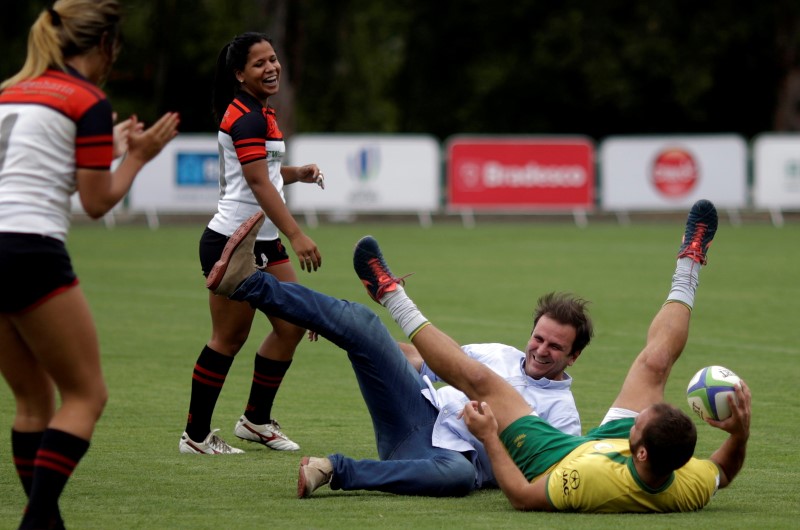By Nick Mulvenney
SYDNEY (Reuters) - The United States have famously been Olympic rugby champions since winning gold in the 15-man game in 1924 but one of a string southern hemisphere sides look set to strike that anomaly from the record books when Sevens makes its debut in Rio.
While Sevens might have the look of a high octane, souped-up version of the 15-man game purpose-built for the era of the attention deficient, its origins go back to 1883 and it has a history and culture all of its own.
At the heart of that history is the pace, power and skill of the Fijians, 16 times winners of the iconic Hong Kong Sevens and World Series champions for the last two years.
They head to Brazil as bookmakers' favourites to win the first men's rugby title in 92 years and secure for the Pacific island nation a maiden Olympic medal of any colour.
As in the 15-man game which they dominate, New Zealand also have a glorious sevens tradition and the All Blacks are likely to be there or thereabouts when the medals are decided.
Sonny Bill Williams, twice a World Cup winner with New Zealand in the longer format, is one of the few high profile test players who have managed to make the transition to the lung-busting exertions of the 14-minute game.
South Africa, with speedster Seabelo Senatla on the wing, and Australia are also strong contenders, while Britain could get among the medals if they manage to bring together a squad of players who usually play for England, Wales and Scotland.
In a format where any team can beat another on a given day, the United States successfully defending the rugby title is not out of the question and in Carlin "fastest man in rugby" Isles and Perry Baker they have the pace to trouble any side.
It will be a women's team who will claim the first Olympic sevens rugby gold, however, as their Aug. 6-8 competition precedes that of the men (Aug. 9-11) at the Deodoro Stadium.
Australia are the reigning World Series champions with New Zealand, whose squad features Sonny Bill's sister Niall, and Fiji also chasing success for the southern hemisphere.
Canada finished third in the 2015-16 World Series ahead of England, who will represent Britain, while France and the United States will also be medal contenders.

Regardless of who walks away with the medals, though, the biggest winners in Rio should be World Rugby, for whom the Olympics is a gilt-edged opportunity to spread the game beyond the handful of nations that constitute its heartland.